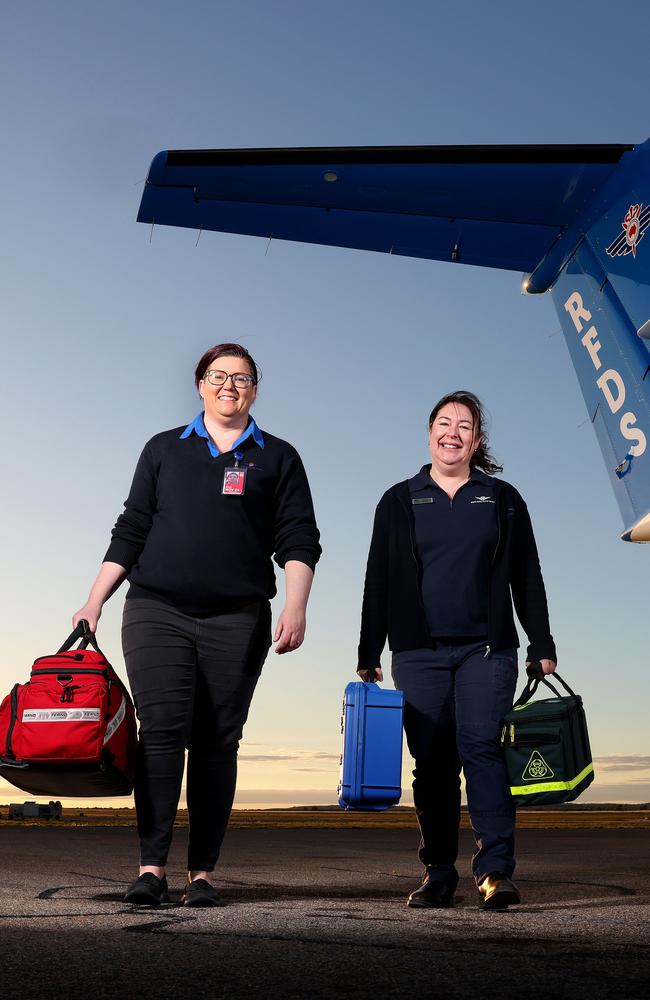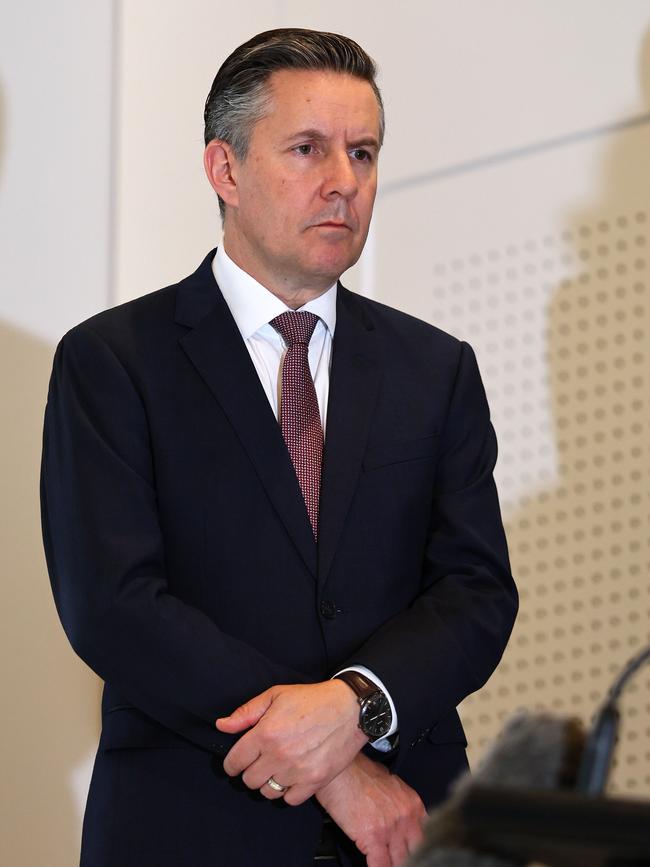Vikki Campion: Overseas-trained doctors blocked from filling vital positions in regional areas
Health Minister Mark Butler needs to urgently review Australia’s process for enabling overseas-trained doctors to fill critical shortages in regional areas, writes Vikki Campion.
Opinion
Don't miss out on the headlines from Opinion. Followed categories will be added to My News.
Welcome to regional Australia, where health bureaucrats in Canberra are forcing specialist doctors to retire, putting patients’ lives at risk, before they release Medicare provider numbers for their replacement.
Our rules on which doctors can work, and where, are strategically xenophobic, and it’s regional patients and health workers who pay the ultimate price.
Perversely, only after a region loses its specialist services, creating a District Workforce Shortage, will the government deem it sufficient to allow Medicare provider numbers for overseas-trained doctors.
Once they are lost, they are gone forever.
One regional cardiology practice tried to hire a New Zealand-trained specialist, but he was rejected three times because, according to the federal health bureaucrats responsible for allocating Medicare provider numbers, the town he wanted to work in was apparently full of doctors.
“Full” is 1700 heart attack patients last year, sharing one and a half interventional cardiologists.
According to federal Health Minister Mark Butler’s office — in response to questions on notice by Hinkler MP Keith Pitt — the Wide Bay Burnett region in Queensland has enough cardiologists, failing to recognise that the only reason it has the specialists it does was because of the specialist hub established 10 years ago.

Despite multiple attempts to engage Mr Butler, who has the power to grant an exemption with one signature, the town’s pleas to allow more doctors have been ignored.
There is a tiny window to recover after a heart attack — and it doesn’t include getting the Royal Flying Doctors to assist with treatment hundreds of kilometres away, or waiting for a bureaucrat in Canberra to transfer a Medicare provider number.
Who wants to be the only heart specialist in a regional town, on call seven days a week, 365 days a year, where every heart attack is on you — no matter the time, day or hour, with no backup?
Rather than governments pulling out all stops to get doctors into these areas, the policy levers introduced more than 20 years ago to channel them into the bush have become an impediment.
Another overseas-trained specialist in regional NSW is paid less than her Australian peers, and she has more experience than them.
Despite being fluent enough to teach other doctors at an Australian university, she is subjected to biannual English assessments.
Her only “crime” is being born in, practising in, and obtaining her medical degree in a “non-competent authority country” like Norway, Sweden, Germany and France.

Long after this goes to print, they will continue to be subjected to a labyrinthine bureaucracy of degrading tests, paid less, and refused Medicare provider numbers in regional areas simply because their degree did not come from an Australian sandstone.
“I would not recommend it to anybody to come here,” the doctor referred to above said.
“You’ll go through a thousand hoops, which are frustrating and expensive, with no feedback.”
The sad reality for many Australian medical graduates is that after the public has spent so much money training them and subsidising their incomes for their lifetime, they have little to no interest in working where they are desperately needed.
Like most things, you restrict the supply, and the price goes up.
It’s no coincidence that the closed shop that is the AMA, whose strong-arm tactics control both sides of the political fence, cannot suggest a solution away from locums to fly in and out of regional towns at enormous expense.
Highly educated, trained specialists with a profound commitment to regional areas have made the sacrifice to move to these towns, only to be kept out of work by policies that seem designed to exclude them.
Mr Butler has commissioned a review, but it’s not rocket science.
The priority in regional areas should be to provide the person to deliver the service, not to create a complication that makes it impossible for them to do so.
WHICH TIE DO YOU LIKE BEST?
n the past, the Liberals and Nationals were the sombre, serious economic conservatives averse to wild experiments with the essentials of living.
No longer. The heir apparent government in Queensland has decided to fatten its path to glory on Labor’s lunch.
That state’s environment minister-to-be Sam O’Connor, not satisfied with just usurping Labor’s short-sighted support for their Voice to Parliament and Treaty, is now going for the hat-trick by leading the charge to follow Labor to an 80 per cent “renewable energy target.”
He, too, has been sucked into the euphemistic jargon of “green, renewable wind and solar farms”.
They are not green, not renewable, and they are certainly not farms.
They are foreign-made, or developed, or owned, intermittent power producers swindling taxpayers in ad hoc subsidies, and everybody else on the price of their power.
What other Labor policies – that will get Labor booted out of George St – do the LNP wish to steal?
Queensland should observe their NSW Liberal and Nationals colleagues who tried to mimic Labor policies to negate Labor’s attack with a lab-meat-eating, forest-clearing-wind-factory-loving Energy Minister and instead negated their government.
Where does this tactic leave the NSW Nationals? Two bad by-elections away from losing party status.
In both NSW and Queensland, the LNP and Labor Party may as well merge. It’s now a case of which tie you like best because what’s inside the suit is the same.
Independents and minor parties will benefit from this cold, bland porridge bowled up as the choice for the upcoming Queensland election.
Where once more than 95 per cent of people voted for the major two parties, already one-third don’t, and the trend is declining towards only half.
If they think there is no alternative, they are sorely mistaken.
Got a news tip? Email weekendtele@news.com.au





